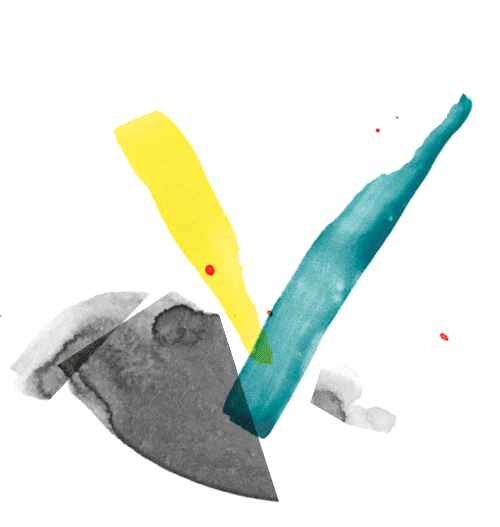

Sign up for our newsletters. You can change the settings or unsubscribe at any time.
Thank you for your subscription. We have sent you an e-mail with a confirmation link.


exp. 1
exp. 2
exp. 3

Carlos Motta
Venue: KW Institute for Contemporary Art
Carlos Motta
Born 1978 Bogotá, CO – lives and works in New York, US
The way sexual and gender politics interact with issues such as immigration, race, ethnicity, or neocolonialism are core themes of Carlos Motta’s projects, which use media ranging from installation to symposia, photos, and videos. One of his main concerns is the critique of hegemonic history through the creation of alternative archives and narratives that destabilize notions of gender—thereby creating a corpus of visibility and representation for non-normative subjectivities.
The three videos that constitute Motta’s work REQUIEM (2016) propose a queer reading for crucifixion, merit, goodness, and atonement—concepts traditionally affirmed by Christian institutions. The video Libera Me [Deliver Me, 2016], featuring a performance in which Ernesto Tomasini sings Gabriel Fauré’s Requiem, represents the singer as a dissident believer asking for forgiveness of his sins. In The End of Crucifixion, theologian Linn Marie Tonstad explains how Christianity has understood the divine gift of life as an economic system of debt and meritocracy, thus replicating the logic of patriarchy and capitalism. In Inverted World, Motta draws from the imagery of Caravaggio’s upside-down Crucifixion of St. Peter (1601). Blending this reference with bondage and sadomasochistic practices, Motta uses “inversion” as a trope to discuss new roles for the cuir/queer community within Christianity. In dialogue with the writings of Argentinian theologian Marcella Althaus-Reid, REQUIEM explores notions articulated in her Indecent Theology: Theological Perversions in Sex, Gender and Politics (2000): How can otherness be included in Christian doctrine? How can queer people live their faith inside the Church? Is it possible, in the words of Tonstad, to assert a new Christian ethic, in which God gives freely and difference is understood as “fundamental and irreducible”?
Lucrecia Palacios
New Look
Flávio de Carvalho
Performance
Feminist Health Care Research Group
Web archive
I: Junto a las curadoras de la XI Berlin Biennale for Contemporary Art
Renata Cervetto, Lisette Lagnado
Conversation
IV: How Fear Can Dismantle a Body. Vis-a-Vis with two of four curators of the 11th Berlin Biennale
María Berríos, Lisette Lagnado
Conversation
O Bailado do Deus Morto
Flávio de Carvalho
Play
#fight4rojava
Graffiti
By using this website you agree to the use of cookies in accordance with our data privacy policy.

Carlos Motta
Venue: KW Institute for Contemporary Art
Carlos Motta
Born 1978 Bogotá, CO – lives and works in New York, US
The way sexual and gender politics interact with issues such as immigration, race, ethnicity, or neocolonialism are core themes of Carlos Motta’s projects, which use media ranging from installation to symposia, photos, and videos. One of his main concerns is the critique of hegemonic history through the creation of alternative archives and narratives that destabilize notions of gender—thereby creating a corpus of visibility and representation for non-normative subjectivities.
The three videos that constitute Motta’s work REQUIEM (2016) propose a queer reading for crucifixion, merit, goodness, and atonement—concepts traditionally affirmed by Christian institutions. The video Libera Me [Deliver Me, 2016], featuring a performance in which Ernesto Tomasini sings Gabriel Fauré’s Requiem, represents the singer as a dissident believer asking for forgiveness of his sins. In The End of Crucifixion, theologian Linn Marie Tonstad explains how Christianity has understood the divine gift of life as an economic system of debt and meritocracy, thus replicating the logic of patriarchy and capitalism. In Inverted World, Motta draws from the imagery of Caravaggio’s upside-down Crucifixion of St. Peter (1601). Blending this reference with bondage and sadomasochistic practices, Motta uses “inversion” as a trope to discuss new roles for the cuir/queer community within Christianity. In dialogue with the writings of Argentinian theologian Marcella Althaus-Reid, REQUIEM explores notions articulated in her Indecent Theology: Theological Perversions in Sex, Gender and Politics (2000): How can otherness be included in Christian doctrine? How can queer people live their faith inside the Church? Is it possible, in the words of Tonstad, to assert a new Christian ethic, in which God gives freely and difference is understood as “fundamental and irreducible”?
Lucrecia Palacios
New Look
Flávio de Carvalho
Performance
III: La familia son quiénes se alegran con nuestros actos diarios. Detrás de las curadoras de la XI
María Berríos, Agustín Pérez Rubio
Conversation
Weaving Solidarity
Renata Cervetto and Duygu Örs
Q&A
Glossary of Common Knowledge
L’Internationale Online
Glossary
THE MOBILIZATION
Nicolás Cuello
Text
Queer Ancient Ways: A Decolonial Exploration
Zairong Xiang
Monograph
By using this website you agree to the use of cookies in accordance with our data privacy policy.

Carlos Motta
Venue: KW Institute for Contemporary Art
Carlos Motta
Born 1978 Bogotá, CO – lives and works in New York, US
The way sexual and gender politics interact with issues such as immigration, race, ethnicity, or neocolonialism are core themes of Carlos Motta’s projects, which use media ranging from installation to symposia, photos, and videos. One of his main concerns is the critique of hegemonic history through the creation of alternative archives and narratives that destabilize notions of gender—thereby creating a corpus of visibility and representation for non-normative subjectivities.
The three videos that constitute Motta’s work REQUIEM (2016) propose a queer reading for crucifixion, merit, goodness, and atonement—concepts traditionally affirmed by Christian institutions. The video Libera Me [Deliver Me, 2016], featuring a performance in which Ernesto Tomasini sings Gabriel Fauré’s Requiem, represents the singer as a dissident believer asking for forgiveness of his sins. In The End of Crucifixion, theologian Linn Marie Tonstad explains how Christianity has understood the divine gift of life as an economic system of debt and meritocracy, thus replicating the logic of patriarchy and capitalism. In Inverted World, Motta draws from the imagery of Caravaggio’s upside-down Crucifixion of St. Peter (1601). Blending this reference with bondage and sadomasochistic practices, Motta uses “inversion” as a trope to discuss new roles for the cuir/queer community within Christianity. In dialogue with the writings of Argentinian theologian Marcella Althaus-Reid, REQUIEM explores notions articulated in her Indecent Theology: Theological Perversions in Sex, Gender and Politics (2000): How can otherness be included in Christian doctrine? How can queer people live their faith inside the Church? Is it possible, in the words of Tonstad, to assert a new Christian ethic, in which God gives freely and difference is understood as “fundamental and irreducible”?
Lucrecia Palacios
Memorial to the Sinti and Roma Victims of National Socialism
Dani Karavan
Memorial
Being in Crisis together – Einander in Krisen begegnen
Feminist Health Care Research Group (Inga Zimprich/Julia Bonn)
Online workshop
Undocumented Rumours and Disappearing Acts from Chile
María Berríos
Essay
O Bailado do Deus Morto
Flávio de Carvalho
Play
„Klaus Eckschen: Hörspiel“
Die Remise
Hörspiel
THE MOBILIZATION
Nicolás Cuello
Text
By using this website you agree to the use of cookies in accordance with our data privacy policy.

Carlos Motta
Venue: KW Institute for Contemporary Art
Carlos Motta
Born 1978 Bogotá, CO – lives and works in New York, US
The way sexual and gender politics interact with issues such as immigration, race, ethnicity, or neocolonialism are core themes of Carlos Motta’s projects, which use media ranging from installation to symposia, photos, and videos. One of his main concerns is the critique of hegemonic history through the creation of alternative archives and narratives that destabilize notions of gender—thereby creating a corpus of visibility and representation for non-normative subjectivities.
The three videos that constitute Motta’s work REQUIEM (2016) propose a queer reading for crucifixion, merit, goodness, and atonement—concepts traditionally affirmed by Christian institutions. The video Libera Me [Deliver Me, 2016], featuring a performance in which Ernesto Tomasini sings Gabriel Fauré’s Requiem, represents the singer as a dissident believer asking for forgiveness of his sins. In The End of Crucifixion, theologian Linn Marie Tonstad explains how Christianity has understood the divine gift of life as an economic system of debt and meritocracy, thus replicating the logic of patriarchy and capitalism. In Inverted World, Motta draws from the imagery of Caravaggio’s upside-down Crucifixion of St. Peter (1601). Blending this reference with bondage and sadomasochistic practices, Motta uses “inversion” as a trope to discuss new roles for the cuir/queer community within Christianity. In dialogue with the writings of Argentinian theologian Marcella Althaus-Reid, REQUIEM explores notions articulated in her Indecent Theology: Theological Perversions in Sex, Gender and Politics (2000): How can otherness be included in Christian doctrine? How can queer people live their faith inside the Church? Is it possible, in the words of Tonstad, to assert a new Christian ethic, in which God gives freely and difference is understood as “fundamental and irreducible”?
Lucrecia Palacios
Flávio de Carvalho: Fazenda Capuava
Archive of Lisette Lagnado
Photographs
Invitation to the Species: Cecilia Vicuña
Tamaas / Cecilia Vicuña
Podcast
Expresiones de la locura: el arte de los enfermos mentales
Hans Prinzhorn
Monograph
Grupo Experimental de Cine en acción
Gabriel Peluffo
Drawing
Solidarity and Storytelling. Rumors against Enclosure
María Berríos
Essay
Museo de la Solidaridad Salvador Allende (MSSA) in Berlin
A conversation between María Berríos and Melanie Roumiguière
Conversation
By using this website you agree to the use of cookies in accordance with our data privacy policy.
By using this website you agree to the use of cookies in accordance with our data privacy policy.




